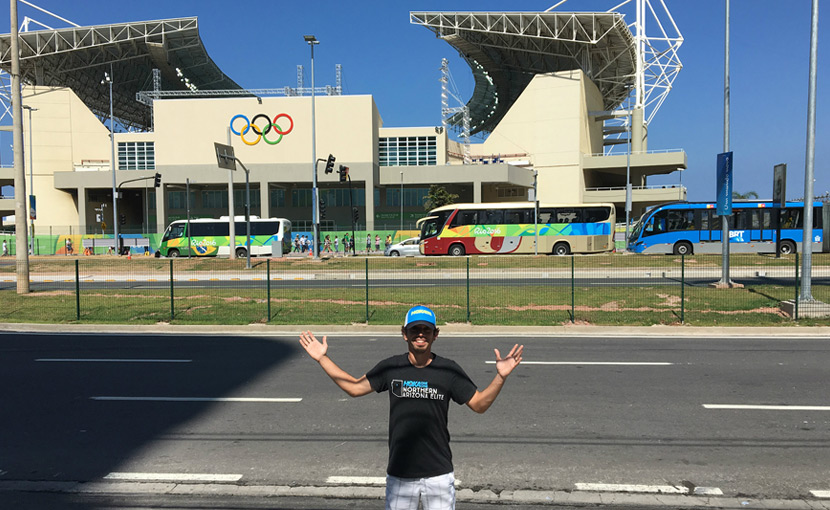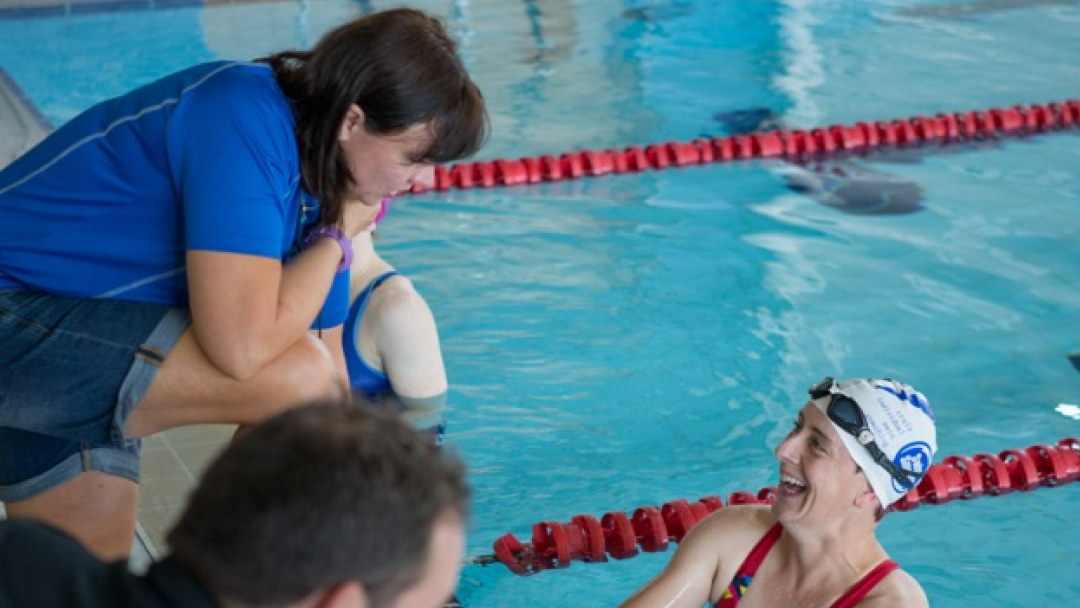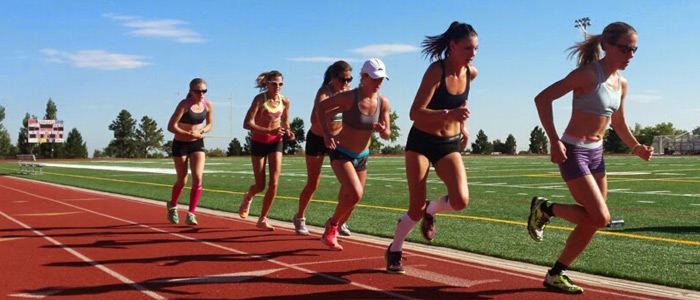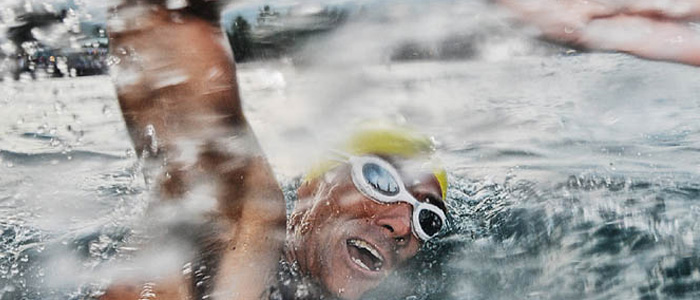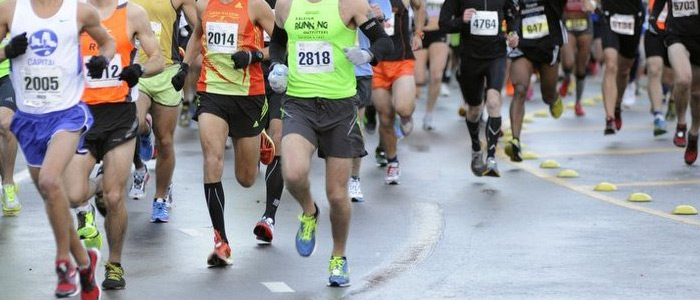As a coach, an extremely competitive coach at that, I certainly don’t put our competitors on a pedestal. After all, it’s hard for athletes to beat people they think are inherently better than them. That saidI’d be foolish not to try and learn from those who are achieving success. In fact, my entire coaching philosophy is essentially a blend of what I’ve observed from other coaches and athletes (good and bad) over the last 20+ years.
And I saw a whole lot of good at the 2016 Rio Olympics from the United States distance/middle-distance squads. Our country produced seven medals in events from 800 meters to the marathon, the largest such haul in 104 years. It was a good 10 days to be a fan of American running.
So here are some quick takeaways from each of our medalists:
EMMA COBURN, Bronze- Women’s Steeplechase:
NEVER, EVER GIVE UP _ With five laps to go in the Women’s Steeplechase final Kenyan Ruth Jebet blitzed a 68.3 and gapped the field by 10 meters. Her compatriots Hivin Kiyeng and Beatrice Chepkoech covered the move as closely as they could and that left Coburn all alone in fourth. Now fourth is not where you want to be at the Olympics. Think of how easy it would have been, running faster than she ever had and still seemingly being left in the dust, for Coburn to have taken her foot off the gas just a little. You know the feeling if you’re a runner. The body is screaming at you that you can’t go any faster and the mind is starting to fill with negative thoughts. But Coburn hit “override” on those signals. She kept her foot on the accelerator and it paid off in a big way. She went by Chepkoech with less than two laps to go and then came within one second of passing Kiyeng at the finish. This takeaway sounds so simple but we all know that it’s not. It takes practice by doing it in workouts and smaller races so eventually you can do it on the very biggest stage. Never, ever give up.
CLAYTON MURPHY, Bronze- Men’s 800 meters:
FAST & RELAXED _ Believe it or not I actually thought this guy had a real shot at a medal before the final. Reason being is that every time I saw him race this season he showed he had mastered running fast and relaxed. Especially in a race like the 800 where athletes are riding such a fine line in terms of energy expenditure, the runner who can stay relaxed and avoid straining often slows down the least. And slowing down the least is what wins medals over the last 200 meters of an 800. Now to be fair to the other six people on this list I saw this trait in every one of them. So let that perhaps be the biggest lesson from Rioconditioning your body to remain relaxed even when it is working at its absolute hardest is a huge key to success.
JENNY SIMPSON, Bronze- Women’s 1500 meters:
FOCUS ON YOU _ When Ethiopian Genzebe Dibaba smashed the 1500-meter world record last summer (3:50.07) it raised a lot of eyebrows in the distance running world. When Dibaba’s coach, Jama Aden, was caught with syringes of EPO in his hotel room in Spain earlier this year those raised eyebrows turned into full-on calls for Olympic bans for his athletes. Amidst all the chaos was Simpson who had to try and remain positive in her own training and not worry about anything else. That could not have been easy. And while the sport’s biggest prize was on the line in this particular scenario, somewhat parallel stories (though not as sinister) play out at all levels of running all the time. High school athletes read stories about other teams and how great their workouts are and how fast they ran at a certain meet. But you can’t worry about that sort of hype. You have to FOCUS ON YOU. That’s what Jenny Simpson did, she said so many times, and when it came down to the last lap in Rio she showed no fear in trying to run down Dibaba and Faith Kipyegon of Kenya. The result was an Olympic Bronze Medal.
EVAN JAGER, Silver- Men’s Steeplechase:
SAVE IT FOR THE BIG ONE _ One observation I made last year after Jager ran his famous 8:00.45 (the one where he fell over the last barrier), was that he didn’t look near as good a few weeks later when he finished sixth at the World Championships. Now that’s not a knock on him or on his coach Jerry Shumacher at all. Being the most ready you can possibly be on the biggest possible day is one of the hardest things in our sport. Clean athletes can’t just run well for months on end, race in and race out, without being a little off now and again. Of course the positive from last summer was that they weren’t off by much. Jager looked like the best steepler in the world for 2,950 meters of that race in Paris. Knowing and studying Jerry over the years I was pretty darn sure they’d nail it this time around. When I saw that Jager wasn’t going to race between the U.S. Trials and the Olympics I had a really good feeling about what he’d do in Rio. And that’s the lessonwhen you’re getting really fit it’s so tempting to go out and race all-out and show everyone what you know you have in you. But whether you’re preparing for the State Meet or the Olympic Games, you’d much rather show the world what you have at the BIG ONE than at Sectionals or a meet over in Europe.
MATTHEW CENTROWITZ, Gold- Men’s 1500 meters:
BRILLIANT TACTICS _ Centro’s race was a PHD-level lesson in how to control a race and make an entire field do exactly what you want it to. He was like a puppet master out there, pulling the strings while the other 12 competitors played right along. Of course, the real lesson is not what he did for three minutes and fifty seconds in Rio but the fact that he’s been working on these tactics his whole career. For him, these brilliant moves have seemed almost innate but we can all get better no matter where we start. For all the milers out there I think the biggest thing is thisin a slow championship-style race you cannot expect to spot your competitors 10 meters and expect to catch them from behind. The math just doesn’t work. If 3:26 1500-meter man Asbel Kiprop can’t do it I doubt you’ll be able to. For any distance, doing as little work as possible and avoiding any back-and-forth “dogfighting” during your race (something Centro always seems to avoid) is the key to having as much energy left at the end as possible.
PAUL CHELIMO, Silver- Men’s 5,000 meters:
SACRIFICE _ I’ve talked to fellow coach Greg McMillan about this quite a bit and he’s totally correct when he says that a lot of people say they want to do everything they possibly can to be an Olympian but then almost no one actually does it. They won’t really give up the things you have to give up. They won’t really go to bed at 9pm every night, they won’t eat right every single day, they won’t do the endless ancillary work that’s required and in general they just won’t live the monk-like existence it takes to be the best. And then there’s Paul Chelimo. He left his friends, his family and his home to come to the United States to get an education. Then, after graduating, he wanted to live his American dream so badly he joined the U.S. Army and went through 10 weeks of Basic Training. 10 weeks that I promise are harder than any period of running you’ve ever experienced or will ever experience. Now, still living the Army lifestyle but applying it to training, he’s been treating running as his job every single hour of every single day under the guidance of Army vet Dan Browne. The result of all of those sacrifices over so many years was a Silver Medal in Rio and maybe the most truly American success story of them all.
GALEN RUPP, Bronze- Men’s Marathon:
PREPAREDNESS _ Say what you will about Salazar and Rupp (and there is plenty to discuss) but no one in the men’s marathon was as prepared for the conditions as they were. People were joking about his hat changes but they were brilliant. As was doing 20-mile runs on the treadmill with the heat cranked up in his house to simulate what he’d face on race day. I think we did almost everything we could possibly do before the Trials in LA but it still bugs me when I see highlights and see Rupp putting the cold sponges up to his mouth at the aid stations. I should’ve thought of that. It was a better way to cool off. But that’s the point of this whole post I think. We can always improve. We can always learn from others. The second you think you know everything, as a coach or as an athlete, is the second you stop getting better.
– BEN

